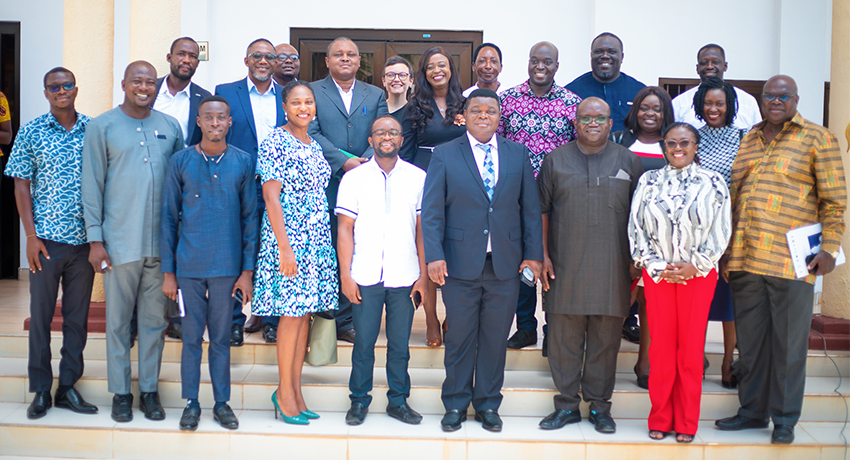The ISSER Inclusive Finance Development Series (IIFDS), an initiative under the Institute’s agenda to position African research institutions at the forefront of advancing evidence for the development of inclusive finance, was launched by Prof. Ernest Aryeetey, a former Vice Chancellor of the University of Ghana and General Secretary of African Research Universities Alliance (ARUA) on May 4, 2023.
The IIFDS is a platform dedicated to facilitating evidence-led engagement on inclusive finance between academia, policymakers, commercial providers, and consumers. It complements the Retail Finance Distribution (ReFinD), ISSER’s sub-grant awarding research initiative.
ReFinD Executive Director, Prof. Peter Quartey, said, “We at ISSER are committed to facilitating an independent, African-led, and evidence-driven platform dedicated to generating and facilitating the use of evidence to advance and safeguard inclusive finance in developing economies, especially in Africa.”
The launch was marked with a public engagement on the 2021 Ghana Findex Data. It featured high-level speakers including Mrs. Elsie Addo Awadzi, Second Deputy Governor of Bank of Ghana (BoG), as keynote speaker, and Dr. Leora Klapper, a Lead Economist in the Development Research Group at the World Bank, a founder of the Global Findex database, and Director of the 2022 World Development Report, as presenter of the 2021 Findex Data, alongside a representative five-member panel comprising key leaders from academia, the policy and regulatory sectors, and industry.

According to statistics from the 2021 Findex data, ownership and use of accounts has surged, driven by mobile money. 68 percent of adults in Ghana had an account in 2021, representing an increase of 10 percentage points since 2017, and almost 40 percentage points since 2011. Also, 60 percent of adults used a mobile money account, and nearly half of these used only a mobile money account.
Despite this progressive and promising growth from efforts over the years, more remains to be done. For example, over 2 million unbanked adults receive agriculture payments in cash, and some 12 percent of adults do not have a mobile account because mobile money agents are too far.
With the main theme of “Towards Financial Inclusion for all: an analysis of Ghana’s Findex data,” the public engagement sought to find what more can be done to overcome the existing barriers and ensure financial inclusion for all.
The discussions pointed to the need to work toward achieving a coherent and market- relevant database through increased academic-industry collaborations. Importantly, besides the IIFDS platform, participants heard about additional strengths of ISSER which commercial partners and other entities can leverage to facilitate the achievement of these objectives.
In this regard, Prof. Quartey highlighted ISSER’s longstanding positive history of conducting robust research, its openness to collaborating with other entities, and the ability to collect and store large amounts of data with real-time access, made possible by the presence at ISSER of a world-class Measurement, Learning, and Evaluation (MLE) unit. Held at the Institute’s conference centre, the event was characterised by informed conversations and recommendations that, if implemented, have the potential to significantly advance Ghana’s financial inclusion objectives.
As one participant, Dr. David Otchere, the Head of Agency Banking at Fidelity Bank said, “I am intrigued by the kind of information I’ve gathered here today; it couldn’t have come at a better time.”

A recording of the event can be accessed here, and below are selected online reports drawing on discussions at the event.
- Log in to post comments

